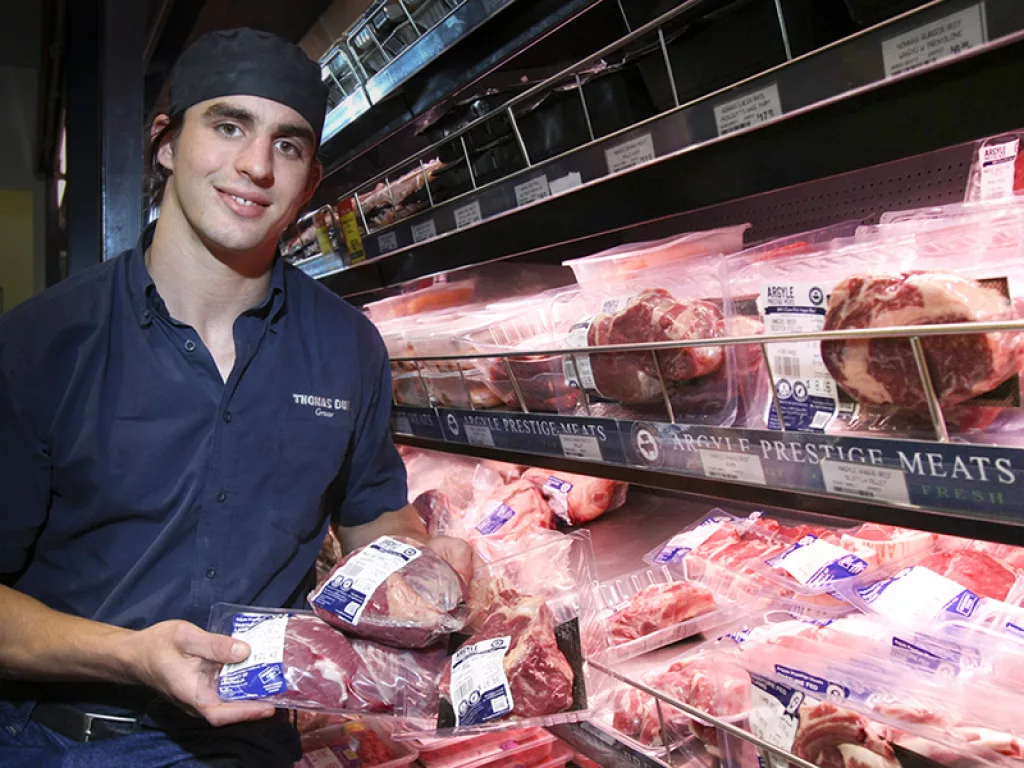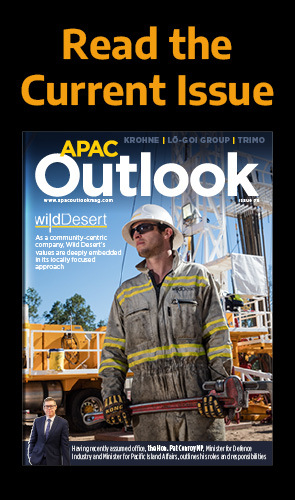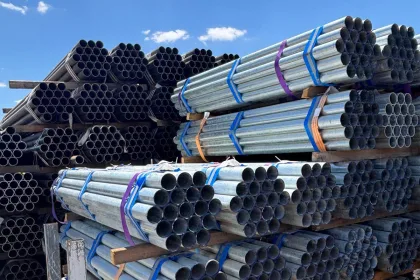We speak to co-CEOs of Argyle Foods Group, Bryce and Lachlan Graham about prioritising providence and influencing industry-wide transformation through responsible meat production.
FARMING FOR FUTURE GENERATIONS
“Our livestock, our environment, and our people come first before anything else,” opens Lachlan Graham, co-CEO of New South Wales based Argyle Foods Group (AFG).
Joining Lachlan as co-CEO is his brother Bryce, who takes the helm of the company’s Hong Kong operations after relocating there in 2013 to develop AFG’s export market.
Collectively, the brothers preside over AFG as a fully vertically integrated meat processing operation, leveraging world class facilities to distribute all-natural, free range, premium quality Australian beef and lamb.
“Both myself and Bryce had a background in agriculture as fifth-generation farmers. We were born and raised on the land,” Graham tells us.
This respect for the land runs deep in the Graham family to this day, with Lachlan describing their role as “custodians” for the pasture on which their animals graze. Indeed, it is this reverence for nature, and by extension, the planet, that truly defines AFG’s outlook, specialising in product that is sustainable, healthy, and fully traceable.
THE ARGYLE DIFFERENCE
When it comes to what differentiates Argyle Foods Group from their market competitors, for Lachlan Graham, the answer is clear.
“First and foremost, it’s the quality of the livestock that we breed and we raise,” he comments. Indeed, AFG’s historic registered Angus Cattle stud has earnt the company many notable accolades, including the award of Australian Beef Farmer of the Year award in 2013.
“This is the key differentiator that establishes our end-to-end supply chain and the fully integrated model that we operate in,” he continues.
Secondly, yet of paramount importance to the company, is AFG’s commitment to environmental sustainability. At AFG, this is nothing new, with a sustainable approach having been at the forefront of the company’s farming operations for over 30 years.
“We have a number of things incorporated into our business and our supply chain that a number of our competitors don’t, and that’s a focus on sustainability and innovation,” he expands.
“Our real focus going forward is our environmental footprint and being an industry leader globally in terms of taking a product and producing it sustainably.”
“This is achieved through what will eventually be a carbon positive production system that is based on genuine soil carbon sequestration via holistic regenerative agriculture practices – not just straight offsets, but actually improving biodiversity and utilising perennial pasture and cattle management to heal the soil making a difference to the environment, to the animals that we raise, to the people that work at our company and to the consumers that enjoy the product,” Graham states.
What distinguishes the AFG product is the company’s ability to provide innovative labelling that leverages blockchain technology to demonstrate full traceability, offering total transparency across the beef supply chain. This is entirely enabled through the company’s partnership with technology provider, KPMG, which AFG embarked on during the last 18 months as the first red meat partner within the ‘KPMG Origins’ programme.
“There’s dozens of blockchain providers in the red meat space trying to promote and verify product and authenticity, but for us, partnering with a top global firm is incredibly powerful,” Graham explains.
Within the company’s sustainability commitments, Bryce Graham also highlights the company’s focus on waste reduction, and the industry-defining role that AFG have played within that.
“Over the last seven years, we’ve really changed the entire landscape in terms of the way that people sell meat in Hong Kong, Taiwan, Singapore and China.”
“Our primary driver is reducing waste, and a by-product of that also increases the retailer’s profitability, whilst being a major positive for the environment,” he comments.
Bryce goes on to indicate AFG’s involvement with Cathay Pacific as an example of this role, as the company’s biggest customer prior to the pandemic, supplying all business class customers with portion-controlled grass fed beef. Previously bringing significant amounts of excess product in the form of off cuts to Hong Kong, AFG proposed a readymade solution that drove both sustainability and profitability on behalf of their customer.
“Our ESG focus is still very much integrated in terms of how we operate the whole supply chain – whether that’s the people that work and operate on the farms, or the meat processing side of the business or in our sales, marketing and distribution,” Lachlan Graham expands.
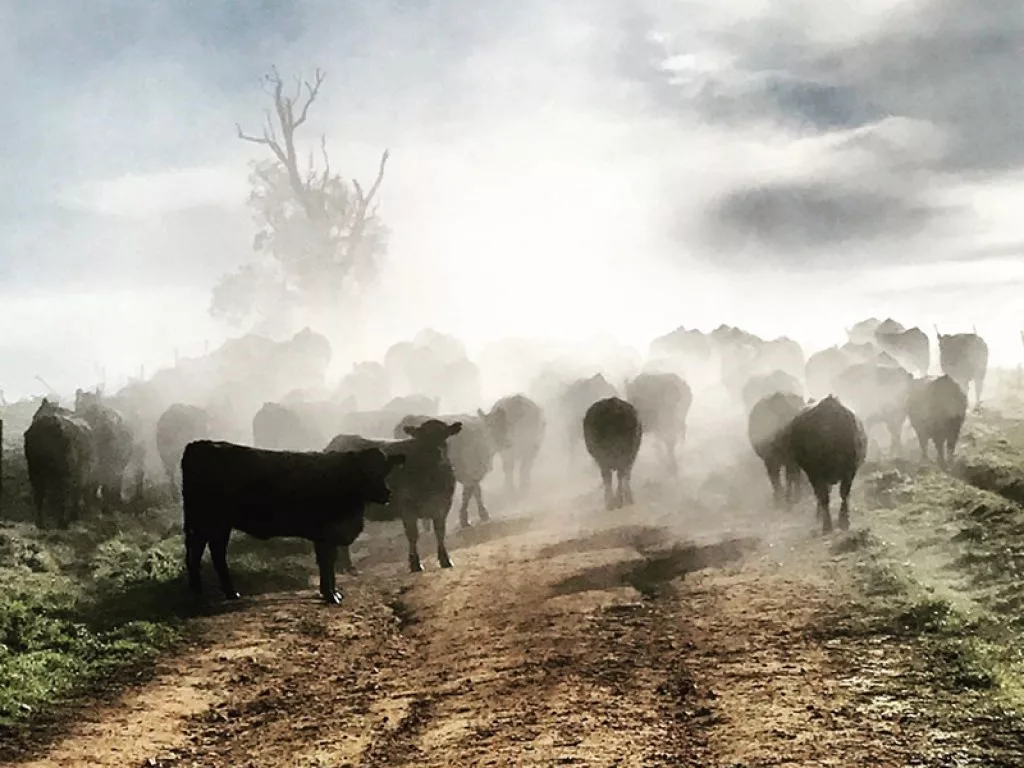
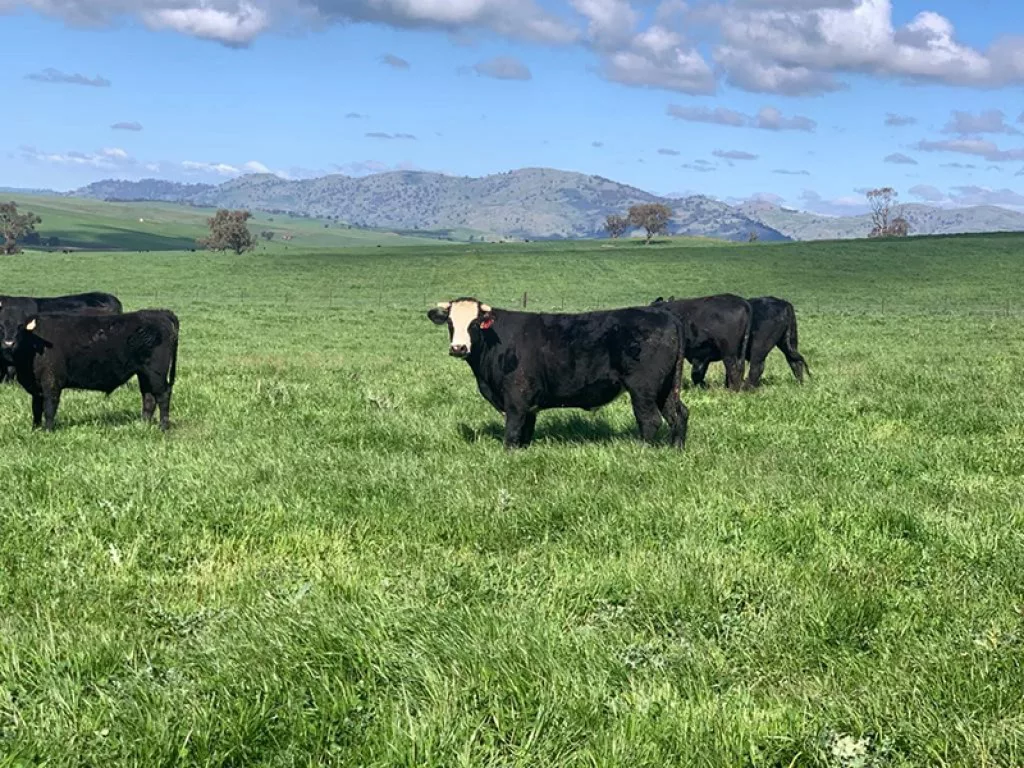
FROM THE FAMILY FARM
Argyle Foods Group began to take form as the large-scale mixed farming enterprise it is today in the early nineties, when the Graham family decided they wanted more control of their upstream supply chain, ultimately overseeing the end destination of their quality product.
Subsequently, Argyle Foods Group ventured into the online distribution of branded beef, leading to the establishment of Argyle Prestige Meats in 2007 – a modestly sized operation in comparison to AFG’s footprint today – presided over by Lachlan and his wife.
“Argyle Prestige continued with a similar model based on selling products online that were processed in the local town,” he explains. “During that time, the retail space was undergoing a lot of change, which was already taking place in the UK, as leading food retailers moved towards a pre-packaged retail ready format.”
Australia had some catching up to do. Subsequently, 2009 heralded AFG’s eruption onto the retail market, defined as a time of “aggressive expansion.”
“In line with our expansion, we invested heavily in packaging technology and innovation around those types of packaging.”
“When you’re talking about technology and the authenticity and the integrity behind the data, you couldn’t choose anyone else but KPMG”
Lachlan Graham, co-CEO, Argyle Foods Group
“We capitalised on that boom in Australia, and that was the growth of going from distributing product online to suddenly expanding and servicing retailers in a domestic market in Australia, predominantly along the East Coast in Sydney and Canberra,” Graham explains.
A few years later, this was further complimented by the aforementioned Hong Kong venture into the export market, replicating the AFG model of a retail ready end to end supply chain, distributing to retailers across the Asian market.
ENABLING INNOVATION
Returning to the defining aspect of innovation within Argyle Foods Group, we see how the company utilise this to extend its unique ethos. This is where KPMG and the technology they provide, becomes paramount.
“We want to have a seamless supply chain where we’re procuring livestock, we’re processing and distributing them, and we’ve got a platform underneath with origins that’s then tracking them back for the full lifetime traceability of the animal.”
“At the moment we’re in a full live phase doing that with the French retailer Carrefour into the Asian markets, and we’re looking to expand that into the US markets as well,” Graham explains.
More from APAC Outlook
Alongside improving working capital, KPMG are instrumental in providing verification on AFG’s carbon footprint.
“We’re heavily retail focussed, so we need a platform that gives us direct communication to consumers and end users, and is powerful in sharing a message, telling a story.”
“For us, that’s the providence of what we produce and how we produce and distribute it – as opposed to mass-market, supplying huge QSRs around the globe. We do supply them, but our real branded focus and platform is where we have invested the last eight years in developing and maintaining.”
“Because of that, we need to have a very robust and technology-backed platform to verify and validate the claims that we are promoting and the products that we are selling,” he explains.
At present, AFG also continue to work on integrating innovative farm management software company AgriWebb, into the KPMG platform.
Aside from the technological aspect, AFG maintain a reputation as industry innovators thanks to their status as the first mainland Australian Certified Humane beef farming operation.
“We are one of the very few, across NSW and Victoria, that are Global Animal Partnership Level Step Four,” he adds. Indicative of the company’s long-term focus on ESG, AFG began to work on achieving such certifications back in 2014.
AFG’s partnership with the MLA (Meat & Livestock Australia) has been instrumental in driving these achievements. The company has recently ventured into their second three-year co-innovation project with the regulatory body, whereby an Innovation Manager has been deployed to the AFG site as a dedicated carbon reduction soil scientist.
“I think if you don’t have a carbon position as a company in food production going forward, then you probably won’t have a company in a couple of years,” Graham concludes.
STRATEGIC PARTNERSHIPS
Of course, the supply chain of Argyle Foods Group would not be possible without the robust backing of a network formed on strategic partnerships and joint ventures.
In this manner, along with the necessary equity investments, AFG have effectively outsourced their production to four different plants across Australia, with a further factory in Hong Kong that the company leases and operates.
By moving on from operating out of one centralised single plant, this strengthened AFG’s positioning during significant trade disruptions across the Asian markets, preceding the seismic impact of COVID-19 that was suffered by companies worldwide, although felt keenly by those within food production working with an integrated supply chain.
“We had to do a number of restructures, but we still have a significant retail ready business that we do domestically across Australia with key retailers. Across Asia, we supply around 3,000 retail outlets with our products,” Graham adds.
“There are very few suppliers, particularly in Australia but also alternative markets, that can supply a product that is 100 percent grass fed, natural, hormone free, GMO free, antibiotic free, certified humane and GAP Four”
Lachlan Graham, co-CEO, Argyle Foods Group
Today, the Asian business represents around 30 percent of AFG’s total market, split regionally between mainland China, Hong Kong, Taiwan, Singapore and Southeast Asia.
Unsurprisingly, AFG’s branded outlets in the Chinese meat markets, have suffered significant disruption throughout the pandemic. During such turbulent times, reliable partners are crucial in maintaining supply and the quality of product.
Bryce Graham identifies AFG’s food supply partner Emerson as a “critical component” of the overall blockchain solution, as a company to perform essential food safety control, monitoring temperature and humidity with cutting edge technology during the transportation of the product. This has proved invaluable for AFG during the freight disruption caused by COVID-19.
Finally, AFG is also partnering with Los Angeles-based China Silver LLC, an experienced Pan-Asian fund manager with an ESG focus, to assist in promoting AGF’s data capture technology in the US, UK and Asian markets. What distinguishes the AFG technology is AFG’s ability to provide innovative labelling that leverages blockchain technology to demonstrate full traceability, offering transparency across the beef supply chain. Argyle and China Silver Asset Management LLC seek to attract up to $500 million from eco-conscious investors through Argyle’s supply chain, which features its premium beef products integrated with a carbon offset focus.
LOOKING AHEAD
Looking to the future, the agenda for Argyle Foods Group focuses heavily on expansion and a greater impetus on delivering to new markets, in particular the US and the UK, whilst expanding distribution to the Middle East.
“The US currently represents about 40 percent of our forward market,” Lachlan explains. To this, he credits the entrance of President Biden and the heralding of an altogether greener mindset amongst the American consumer, creating a heightened demand for the product that AFG have to offer.
Aside from this, the recently completed free trade agreement (FTA) between the UK and Australia, makes for a particularly promising market.
“The UK will become a key market for us by around 2022, since our products are perfect for that market.”
“With a focus on regenerative agriculture utilising pastures and cattle and predominantly 100 percent natural grass-fed, hormone free, antibiotic free, zero emission and top-quality beef, processed through our end-to-end supply chain and with full verification and traceability via blockchain – it’s a pretty unique product.”
It is through this unique product that AFG voice their primary goal – to influence widespread industrial change, whereby more food production businesses adopt an ESG focus.
In fact to underpin this initiative, AFG has engaged in a three-year CISP (Co-innovation strategic partnership) with the MLA (Meat & Livestock Australia) and has employed a full time Carbon Innovation Manager focused solely on developing and executing the digitisation of Argyle Pastoral and the carbon objectives of AFG to report, validate and market these environmental achievements through the entire supply chain via the KPMG Origins blockchain platform.
“Consumers, and the world can benefit from sustainable and healthy production. We want to impact that positively as healthy soils produce healthy plants, which is the foundation for healthy food and a healthy planet.”
